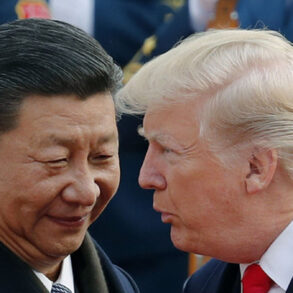India Launches Operation Sindoor Against Pakistan
On May 7, 2025, India escalated tensions with Pakistan by launching a surprise missile offensive known as Operation Sindoor, striking nine targets in Pakistan and Pakistan-administered Kashmir. The Indian government said the attacks were carefully coordinated “precision strikes” aimed at militant camps used by the UN-designated terrorist group Lashkar-e-Taiba, which New Delhi holds responsible for the April 22 massacre of 26 Hindu pilgrims in the Kashmiri town of Pahalgam.
“This is a message to every terrorist and their sponsor,” declared Prime Minister Narendra Modi. “India will identify, track, and punish those who seek to harm our citizens.”
India’s Ministry of Defence emphasized that no civilian, economic, or traditional military targets were hit. “Only known terror camps were targeted. These were measured, responsible strikes designed to avoid escalation,” read a statement from the Indian embassy in Washington.
On the Ground in Pakistan
In the early morning hours, residents in Muzaffarabad, the capital of Pakistan-administered Kashmir, were jolted awake by thunderous explosions. Pakistani officials said three separate locations were struck: two in Pakistan-controlled Kashmir and one in Bahawalpur in Punjab province. Several buildings were destroyed, including a mosque in Bahawalpur, according to early reports.
The Pakistani government initially confirmed that at least eight civilians were killed and more than 35 injured. Among the dead were two children and several women. Later updates from local hospitals in Ahmadpur East and Muridke reported additional casualties, with injured victims arriving throughout the morning.
Pakistani military officials responded with retaliatory artillery fire across the Line of Control (LoC), the de facto border dividing Kashmir. India’s army said three civilians were killed in Indian-administered Kashmir as a result of what it called “arbitrary firing” from the Pakistani side.
The situation escalated further when Pakistan’s Defense Minister Khawaja Muhammad Asif told Bloomberg that at least five Indian planes had been shot down and that several Indian soldiers had been captured. “If these hostile acts are stopped, we will talk to India,” he said. “We do not want this situation to escalate, but if there are hostile acts initiated from the Indian side, we have to respond.”
Pakistan’s military later confirmed that its air defenses had engaged incoming targets and that aerial engagements occurred over Punjab province. Eyewitnesses in the area reported seeing fireballs and wreckage consistent with aircraft being downed, though Indian officials have not publicly confirmed any losses.
Pakistan Condemns the Strikes as a “Blatant Act of War”
Pakistan’s Foreign Ministry labeled the attack an “unprovoked and blatant act of war.” A formal statement read, “India’s act of aggression has resulted in martyrdom of civilians, including women and children. This act of aggression has also caused a grave threat to commercial air traffic.”
“The entire nation stands united behind its armed forces, and our morale and resolve remain unshaken,” said Prime Minister Shehbaz Sharif. “India started it, we’ll finish it.”
Information Minister Attaullah Tarar added during an interview with the BBC, “They have crossed our limits. This attack is unjustified and an absolutely blind aggression. Our response is on the ground and in the air.”
Pakistan’s National Security Committee was called into emergency session and issued orders for hospitals to go on high alert. Schools were closed across Punjab and Islamabad. Chief Minister Maryam Nawaz Sharif stated, “We want peace, but if war comes to our doorstep, we will become a legion.”
A Fragile Region with a Violent Past
India and Pakistan have fought three major wars since their partition in 1947, two of them over Kashmir. The region remains one of the most militarized and volatile flashpoints in the world. Kashmir is claimed by both countries in full but controlled in parts, and since 1989, a bloody insurgency has taken hold in the Indian-administered portion of the region.
India accuses Pakistan of supporting militant groups like Lashkar-e-Taiba, which was behind the 2008 Mumbai attacks. Pakistan denies the accusation but says it offers moral and diplomatic support to the Kashmiri people.
Religious identity adds fuel to the fire. India is a majority Hindu nation, while Pakistan was created as a homeland for Muslims. The Muslim-majority region of Kashmir lies at the heart of this centuries-old religious divide.
The Global Fallout and Flight Disruptions
The conflict has already sent shockwaves through international air travel. Air India, Qatar Airways, Emirates, Lufthansa, and Air France have suspended flights over northern India and Pakistan. Major Indian airports in Jammu, Srinagar, Leh, and Amritsar have been shut down. Pakistan closed airspace over key cities including Lahore and Karachi.
Hospitals in Pakistan’s Punjab province were placed on alert. In India, authorities closed schools in Jammu, Rajouri, and Poonch, and ordered civil defense drills to prepare citizens for possible aerial attacks.
The Pakistani government also accused India of interfering with water flows from the Chenab River, part of the Indus system that sustains Pakistan’s agriculture. Pakistani officials warned that any such disruption would be seen as an act of war, declaring that “if the Indians stop those rivers, then those rivers will flow with blood.”
Calls for Restraint as Mediation Begins
Iran, which maintains relations with both India and Pakistan, has offered to mediate. Iranian Foreign Minister Abbas Araghchi visited Islamabad earlier this week and was scheduled to meet Indian officials in New Delhi shortly after the strikes. The United Arab Emirates also called for restraint, saying, “Avoid further escalation that could threaten regional and international peace.”
U.S. Secretary of State Marco Rubio said, “I am monitoring the situation between India and Pakistan closely,” and confirmed that he had been briefed by India’s National Security Adviser Ajit Doval. President Donald Trump said during a White House briefing, “I just hope it ends very quickly.”
Analysts like Michael Kugelman of the Wilson Center warned that the region is now at its most dangerous point in years. “This is the moment for some well-timed mediation. The risk of escalation is very high. No one wants a war, especially one between two nuclear-armed states.”
A Fragile Calm or a Ticking Clock?
What began as an alleged counterterrorism strike has now triggered a chain of military and political reactions, pulling two nuclear rivals dangerously close to full-scale war. Indian strikes, Pakistani retaliation, civilian deaths, airspace shutdowns, and the shooting down of planes mark a volatile moment that could erupt into something far more devastating.
So far, both sides have used conventional weapons. But with nuclear arsenals on both ends of the border and nationalist emotions rising, the world watches nervously.
NP Editor: This is scary. India and Pakistan have traditionally been at each other’s throats – a frequent flashpoint being water rights in the Kashmir region. If this situation gets out of control, nuclear weapons may become the threat.
I’ve spent some time in that part of the world, and found that thought processes are much different from countries that developed under the Judeo-Christian tradition. I would like to say they are not crazy enough to use nukes, but I’m not qualified to be that judge.








